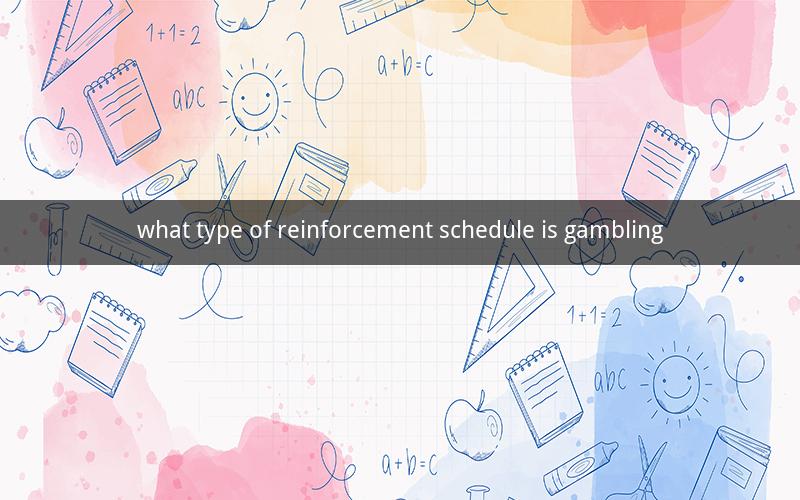
The Impact of Reinforcement Schedules on Gambling Behavior
Table of Contents
1. Introduction to Reinforcement Schedules
2. Understanding Gambling as a Reinforcement Schedule
3. Types of Reinforcement Schedules in Gambling
3.1 Fixed Ratio (FR)
3.2 Variable Ratio (VR)
3.3 Fixed Interval (FI)
3.4 Variable Interval (VI)
4. The Role of Schedules in Maintaining Gambling Behavior
5. The Effects of Different Schedules on Problem Gambling
6. Conclusion
1. Introduction to Reinforcement Schedules
Reinforcement schedules are a crucial aspect of operant conditioning, a type of learning that occurs through consequences of behavior. These schedules dictate the timing and frequency of reinforcement, which can either increase or decrease the likelihood of a behavior occurring. In the context of gambling, understanding the various reinforcement schedules can provide insights into the mechanisms that drive gambling behavior and its potential risks.
2. Understanding Gambling as a Reinforcement Schedule
Gambling can be viewed as a form of operant conditioning, where the reinforcement is the pleasure derived from winning, and the behavior is the act of gambling. This pleasure serves as a reward that strengthens the gambling behavior, leading to its persistence and potential escalation into problem gambling.
3. Types of Reinforcement Schedules in Gambling
3.1 Fixed Ratio (FR)
In a fixed ratio schedule, reinforcement is delivered after a fixed number of responses. For example, a gambler may receive a reward for every fifth bet placed. This schedule creates a strong association between the behavior (betting) and the reinforcement (winning), making it highly effective in maintaining gambling behavior.
3.2 Variable Ratio (VR)
A variable ratio schedule provides reinforcement after a variable number of responses. In gambling, this could mean winning after an unpredictable number of bets. This type of schedule is often more potent than a fixed ratio schedule, as it creates a sense of anticipation and unpredictability, which can be highly engaging for gamblers.
3.3 Fixed Interval (FI)
In a fixed interval schedule, reinforcement is delivered after a fixed amount of time has elapsed since the last reinforcement. For example, a gambler may receive a reward after every 30 minutes of play. This schedule can lead to binge-like behavior, as gamblers may continue to play in anticipation of the next reward.
3.4 Variable Interval (VI)
A variable interval schedule provides reinforcement after a variable amount of time has elapsed. In the context of gambling, this could mean winning after an unpredictable amount of time has passed. This schedule can create a sense of urgency and can lead to increased gambling activity as gamblers try to predict when the next reward will occur.
4. The Role of Schedules in Maintaining Gambling Behavior
The reinforcement schedules in gambling play a significant role in maintaining gambling behavior. The anticipation of winning and the associated pleasure reinforce the behavior, making it more likely that gamblers will continue to engage in gambling activities. Additionally, the unpredictability of the reinforcement schedules can create a sense of excitement and make gambling even more appealing.
5. The Effects of Different Schedules on Problem Gambling
The different reinforcement schedules in gambling can have varying effects on problem gambling. For instance, variable ratio schedules may be more likely to lead to problem gambling due to their ability to create a sense of anticipation and urgency. Conversely, fixed ratio schedules may be less likely to lead to problem gambling, as they provide a more predictable and consistent reinforcement.
6. Conclusion
Understanding the role of reinforcement schedules in gambling can provide valuable insights into the mechanisms that drive gambling behavior. By recognizing the different types of schedules and their potential effects, researchers, policymakers, and individuals can work towards developing strategies to mitigate the risks associated with problem gambling.
Questions and Answers
1. What is the difference between a fixed ratio and a variable ratio reinforcement schedule in gambling?
- A fixed ratio schedule provides reinforcement after a fixed number of responses, while a variable ratio schedule provides reinforcement after a variable number of responses.
2. How do fixed interval and variable interval reinforcement schedules affect gambling behavior?
- Fixed interval schedules can lead to binge-like behavior as gamblers anticipate the next reward, while variable interval schedules can create a sense of urgency and increased gambling activity.
3. Can reinforcement schedules contribute to problem gambling?
- Yes, reinforcement schedules can contribute to problem gambling by reinforcing the behavior and creating a sense of anticipation and urgency.
4. Why might a variable ratio schedule be more potent than a fixed ratio schedule in gambling?
- A variable ratio schedule is more potent because it creates a sense of anticipation and unpredictability, which can be highly engaging for gamblers.
5. How can understanding reinforcement schedules help in preventing problem gambling?
- Understanding reinforcement schedules can help by identifying the factors that contribute to problem gambling and developing strategies to mitigate these risks.
6. Are there any negative consequences of using reinforcement schedules in gambling?
- Yes, negative consequences include increased likelihood of problem gambling, financial difficulties, and potential addiction.
7. Can reinforcement schedules be used to treat problem gambling?
- Yes, reinforcement schedules can be used in treatment by helping individuals recognize the triggers that lead to gambling and developing strategies to avoid these triggers.
8. How do reinforcement schedules affect the brain's reward system?
- Reinforcement schedules affect the brain's reward system by creating a sense of anticipation and pleasure, which can lead to increased dopamine levels and reinforce the gambling behavior.
9. Are there any ethical considerations when using reinforcement schedules in gambling?
- Yes, ethical considerations include ensuring that reinforcement schedules do not lead to harm, such as problem gambling or addiction, and that they are used responsibly.
10. Can reinforcement schedules be modified to reduce the risk of problem gambling?
- Yes, reinforcement schedules can be modified to reduce the risk of problem gambling by making them less predictable and less reinforcing.